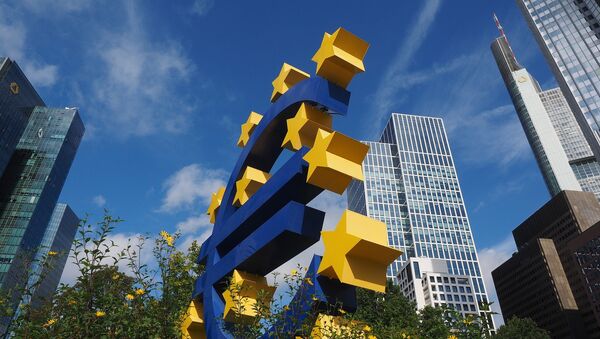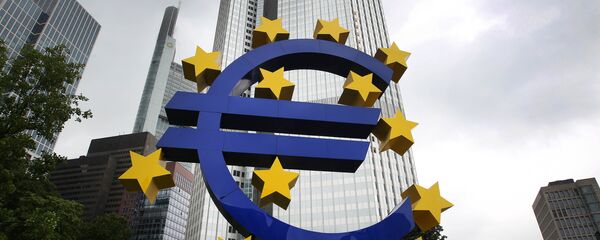Sputnik has spoken to Santiago Niño-Becerra, a Spanish economist, professor at Ramon Llull University (Universidad Ramon Llull) in Barcelona about the benefits and drawbacks, the currency has brought to the Eurozone during the two decades of its existence
Sputnik: This year, the euro celebrates its 20th anniversary. What have been the positive and negative aspects of adopting this currency in Spain? Has the single currency created a greater inflow of funds into the country's budget, for example, in the field of tourism?
Santiago Niño-Becerra: Recently, I posted a tweet and I'll repeat it. 1) Essentially the euro was thought up for the members of the "Deutsche Mark zone", 2) it was designed to favour business and to move excess liquidity from the centre to the periphery, and 3) the economic structures were disparate, for example, there was nothing in common between the performance of Spain and the Netherlands. There was a lack of homogeneity between the economies of the countries.
READ MORE: Who Benefits From the Euro 'Comes Down to Bargaining Power' — Prof.
The United States was saying what it had been saying against the currency because the euro didn't suit the US dollar.
Some of us were saying that it was a mistake for Spain to enter as it did (basically it was done for businesses); we were saying we would pay for low productivity: that is the "internal devaluation" that Spain has had for a number of years.
None of the PIIGS countries — Portugal (P), Italy (I), Ireland (I), Greece (G) and Spain (S) — should have entered as they did; but even to enter (as in the case of Denmark and Sweden) there had to be an economic base, which neither Spain nor the rest of the PIIGS countries had. Although it is also true that during a crisis, the PIIGS' membership creates a kind of an umbrella (I have doubts about Greece). In any case, it's all history now.
Santiago Niño-Becerra: In the economic context of Europe, Spain's role is very small. The weight of its economy is 10%, but this GDP hides two very serious realities. On the one hand, Spain's foreign debt is monstrous — 145% of its GDP and, despite the fall in interest rates, Spain must pay more than €30 billion each year.
On the other hand, the activity rate is very low — 59%; and the unemployment rate is a significant factor to which are added some of the highest levels of shadow economy and tax fraud in Europe. Neither Spain nor any other country can do anything about the global crisis, but due to the characteristics and the shortcomings of its economy, Spain is forced to follow the guidelines that are given. As a result, the Spanish economy is not leader in solving the crisis, but a follower.
READ MORE: Dumping the Dollar? EU Seeks to Promote Euro in Global Energy Trade
Sputnik: Josep Borrell also advised the Poles to "consider Spain's experience" when deciding on the transition to the euro. Do you think that the expansion of the Eurozone at the expense of Poland will be an impetus, or will it challenge the Eurozone economy?
Santiago Niño-Becerra: If we analyse Poland's macroaggregates, it turns out that if Poland introduced the euro in the way that Spain did, this would see a repeat of the Spanish situation and its consequences.
Sputnik: Could you explain how the Eurozone countries are dealing with EU member states that are not yet part of the Eurozone?
Santiago Niño-Becerra: Sweden is a member of the EU, but is not a member of the EU's Economic and Monetary Union; the same is true for Denmark. There are no problems with this because there are agreements on convertibility.
The views and opinions expressed by the speaker do not necessarily reflect those of Sputnik.


